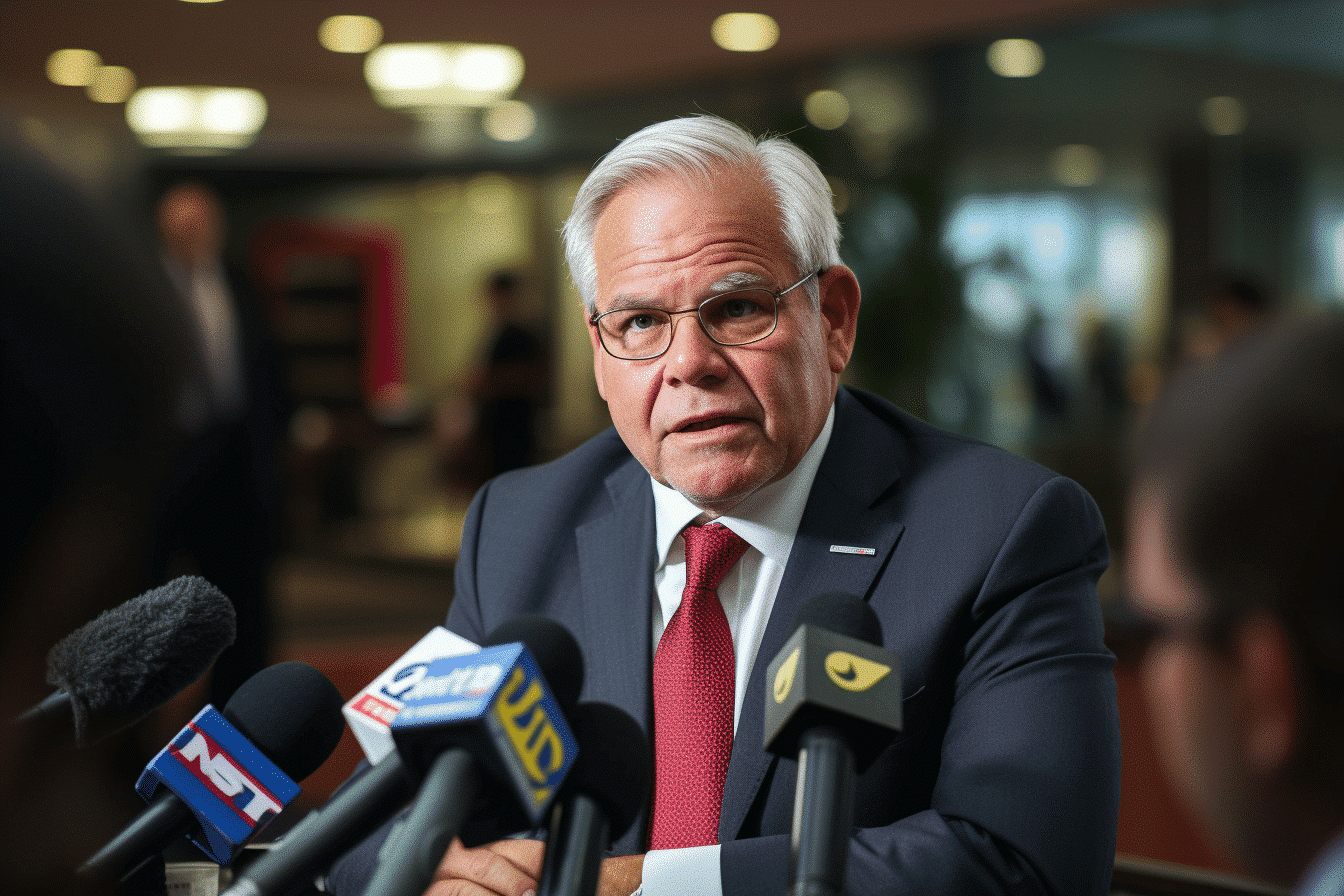US Senator Bob Menendez from New Jersey refuted charges in court on Wednesday, where he was accused of accepting cash and gold bars bribes. These bribes were allegedly in return for promoting Egyptian interests and assisting local business figures.
After a short hearing in a lower Manhattan federal court, Menendez, alongside his wife Nadine, who also denied the allegations, left the premises. While the couple refrained from commenting to the press, Menendez seemed unfazed as he departed.
Maintaining his innocence, Menendez expressed confidence in his eventual exoneration and stated his intent to continue serving in the Senate. Nonetheless, numerous Senate Democrats, including New Jersey’s own Senator Cory Booker and Illinois Senator Dick Durbin, have called for his resignation. However, Senate Majority Leader Chuck Schumer refrained from suggesting Menendez step down, although he did hint at the senator falling short of the expected standard.
In the courtroom, Menendez responded only when required to acknowledge his understanding of the charges. A legal representative entered his plea of not guilty. After the indictment, Menendez stepped down from his influential role as Senate Foreign Relations Committee chairman.
Upon being granted a $100,000 bond, Menendez was instructed to give up personal passports, maintain only his official passport for governmental duties, and avoid discussing the case outside legal counsel. The conditions also restrict his interactions with specific individuals familiar with the case.
Senator Ben Cardin of Maryland has since been named the new head of the Foreign Relations panel.
This marks Menendez’s second run-in with corruption allegations in ten years. A previous case in 2017 ended inconclusively with a jury deadlock. Recently, officials discovered vast sums of cash and gold bars at Menendez’s residence.
Prosecutors claim that Nadine Menendez was instrumental in gathering considerable bribes from New Jersey business magnates. The allegations include Menendez’s efforts to bolster the Egyptian regime, meddle in legal probes concerning acquaintances, and manipulate certain prosecution appointments in New Jersey.
Two businessmen, Jose Uribe and Fred Daibes, denied the charges, while Wael Hana pled not guilty to similar allegations. Hana had voluntarily returned from Egypt to confront these charges.
Defending himself, Menendez clarified that the discovered cash was from his personal savings for emergencies. However, some evidence ties certain funds to businessman Daibes.
According to the indictment, Menendez allegedly aided Egypt in various ways, despite the country’s questionable human rights stance, which has recently led to congressional restrictions on aid. The prosecution accuses Menendez of disclosing confidential US intel to Egyptian representatives and pushing for a resumption of significant aid to Egypt. Moreover, Menendez allegedly pressed a US agriculture representative to favour a deal beneficial to Hana’s firm.
As the legal proceedings unfold, the allegations against Senator Menendez and the associated individuals spotlight potential corruption within political ranks. These events serve as a reminder of the importance of accountability and transparency in the public sphere. Whether or not Menendez is found guilty, this case underscores the critical role of checks and balances in maintaining the integrity of democratic institutions.




